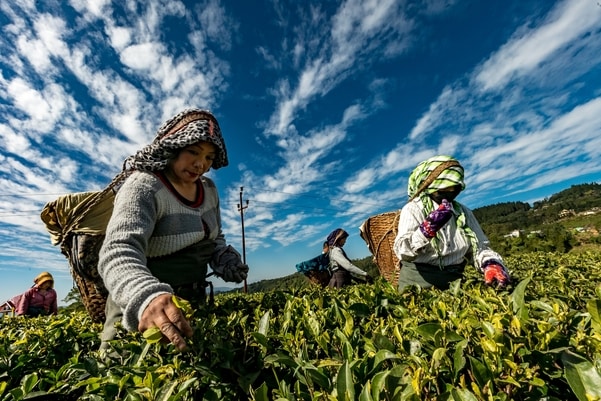The UN secretary-general António Guterres has released a policy brief called, “The Impact of COVID-19 on Food Security and Nutrition,” in which he discusses the need to safeguard everyone’s access to food and sufficient nutrition, calling our current food systems ‘broken’. He also urges the world to reshape its current food systems to be more resilient and sustainable to combat the COVID-19 pandemic as well as the climate crisis.
—
The brief calls on governments to prioritise actions that will protect people during and beyond the pandemic. Guterres points out that millions were already struggling with hunger and malnutrition before the pandemic; 144 million children around the world under the age of five are stunted mainly due to malnutrition, which is likely to get worse as the world deals with the pandemic. While there is more than enough food in the world to feed everyone, more than 820 million people still do not get enough to eat, numbers which will likely increase, he adds.
He says, “Unless immediate action is taken, it is increasingly clear that there is an impending global food security emergency that could have long term impacts on hundreds of millions of adults and children.”
You might also like: The EU Circular Economy Plan Aims To End ‘Throwaway Culture’
Even in countries with an abundance of food, COVID-19 risks disrupting food supply chains. He says, “Our food systems are failing, and the COVID-19 pandemic is making things worse.”
Earlier in June, the UN predicted that at least 49 million people may fall into extreme poverty due to the pandemic, expanding the number of those that are food or nutrition insecure. For every percentage point drop in global GDP, an additional 700 000 children will experience stunted growth. The World Bank predicts that the global economy will shrink by 5.2% in 2020.
The policy brief makes three recommendations, including governments directing resources to areas most at risk of food insecurity, putting social protection systems in place to ensure that children, breastfeeding and pregnant women and other vulnerable groups have access to nutritious food and finally, investing in more sustainable and efficient food systems.
Essential Food Services
Countries should designate food and nutrition as essential, while also implementing protections for those who work in the sector to ensure that food systems can continue to function.
He adds that relief packages should also benefit the most vulnerable members of society, including small-scale farmers and rural businesses.
Guterres says, “It means preserving critical humanitarian food, livelihood and nutrition assistance to vulnerable groups and positioning food in food-crisis countries to reinforce and scale up social protection systems.”
Reshaping Food Systems
The outbreak of the pandemic came at a time when food security and food systems were already under pressure, with factors such as conflict, natural disasters, the climate crisis and plagues of pests undermining food security. In parts of Africa and Asia, people are facing what the brief calls a ‘triple menace’, as heavy rain hinders efforts to control the swarms of locusts in the time of the pandemic.
Guterres urges countries to build food systems which address the needs of both producers and workers, and to eradicate hunger by ensuring more equitable access to nutritious food.
The pandemic underscores the need to transform the world’s food systems. After all, these systems contribute a significant portion to global greenhouse gas emissions- up to a third– and substantial biodiversity loss. Further, livestock contributes 14.5% of all greenhouse gas emissions, of which 44% is methane. Our food systems contribute to, among other things, the mass extinction of species, ecocide, soil loss, land degradation, water and air pollution and the spread of zoonotic diseases (as seen with COVID-19).
Humanity must rethink the way we produce, process, market and consume our food and dispose of waste to create more inclusive, sustainable and resilient food systems post COVID-19.
To create food systems that are efficient, sustainable and resilient, careful management of land, soil and water is needed; the Food and Agriculture Organization of the United Nations (FAO) claims that when forest land is converted to crops, soil carbon decreases by 42%, while conversion of pastures leads to a 59% reduction. Post-harvest food loss must be tackled through low-cost handling and storage technologies as well as packaging.
As for resilience to the climate crisis, this can be achieved through water and energy-saving irrigation, conservation agriculture, as well as controlled environment farming, livestock grazing management, energy-efficient cold storage, biogas production and renewable energy.

















